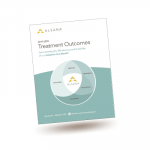Developing a Stress Management Plan
No one is immune to stress. Not only is stress a fact of life, but it’s also not all bad. Stress can help us rise to meet daily challenges and can even motivate us to reach our goals. Some stress serves as a warning system advising us how to respond to dangerous situations.
Still, we all need a stress management plan to helps us become more resilient to life’s inevitable stressors. Stress can lead to worry, anxiety, and other relational, physical, or mental health issues. While we can’t always prevent or avoid stress, we can develop practices and skills to manage the vicissitudes of life’s stressors. And when we have a stress management plan in place, it empowers us to respond to stressors more thoughtfully and constructively. Taking the time to formulate a stress management plan is a crucial part of the recovery process and a capstone of eating disorder relapse prevention.
What is Stress?
Stress in and of itself is not bad; stress is the body’s way of trying to protect us, a response to perceived danger, demand, or threat. That’s why we don’t need to eradicate it but instead focus on developing tools and practices that help us manage stress before it becomes overwhelming or even dangerous.
Benefits of well-managed stress
- Stress can be a motivator, instilling a sense of urgency
- Stress helps us rise to meet particular challenges
- In extreme cases, stress can increase strength and other survival mechanisms
Common Causes of Stress
External as well as internal factors can cause stress.
External causes of stress
- Loss of a loved one, relationship, or job
- Change in health status
- Work obligations
- Family obligations such as becoming a caregiver
- Financial obligations or basic needs insecurities
- Traumatic events such as natural disasters or violence (witnessed and/or experienced)
- Major life changes
Internal causes of stress
- Challenges in emotional regulation
- Difficulty setting and maintaining boundaries
- Depression and anxiety
- Pessimism
- Rigid thinking
- Perfectionism or an all-or-nothing way of thinking
Stress-related health risks
Shorter-term stress-related health concerns
- Headaches
- Depression and anxiety
- Pain
- Problems with memory
- Fatigue and/or trouble sleeping
- Trouble with focus or concentration
- Digestive issues
- Irritability
Aggregate health risks caused or exacerbated by stress
- High blood pressure
- Skin problems
- A dramatic change in weight
- Heartburn
- More severe digestive issues or disorders
- Heart disease
- Heart attack

Signs and symptoms of too much stress
- Cognitive symptoms include pessimism, memory issues, anxiety, poor judgment, worry, and increased difficulty with focus/concentration.
- Emotional symptoms include feelings of overwhelm, anger or agitation, loneliness, and sadness.
- Physical symptoms include digestive issues, nausea, pain, change in sex drive, frequent illness, and rapid heart rate.
- Behavioral symptoms include: change in eating habits, sleeping much more or much less than usual, withdrawal from social situations and relationships, neglecting work obligations, substance abuse, or increased substance use.

Stress Tolerance Factors
Everyone’s stress tolerance level and methods for responding to stress effectively varies. However, some key factors influence stress tolerance levels.
- A support network is vital: fight isolation with a strong community.
- Accept the things you cannot change: Know when to go with the flow.
- Feel your feelings, but don’t let them drive the car.
- Optimism: begin with a positive outlook when possible.
Improving the ability to manage stress
- Build some joyful movement or exercise into your routine (and leave perfectionism out of it!)
- Rely on your healthy relationships
- Nourish your body without sacrificing enjoyment or pleasure (and leave perfectionism out of it!)
- Prioritize relaxation and ‘non-time.’
- Sleep, hydrate, and get some sun. (you’re basically a houseplant)
Stress Management tools for individuals struggling with eating disorders
- Calm down with yoga, meditation, or mindfulness practices and intentional breathwork.
- Practice gratitude every day and be patient, recognizing that stress management is a lifelong practice.
- Feel and vent your feelings through journaling, consistent therapy sessions, playlists, and relationships.
- Create some distance between you and your thoughts by noticing, “I am not my thoughts.” In other words, be observant without identifying with thoughts.
- Don’t avoid painful thoughts or feelings; acknowledge them with compassion as they arise and try to let them go; challenge negative thoughts’ validity (in a nonjudgemental way) if they persist. Suppose negative emotions persist, no need to challenge them. Give yourself space to feel.
- Be strategic and proactive by developing time-management skills rooted in accountability and a schedule that creates self-care space.
Tips for creating a stress management plan
Identify your stress triggers (people, places, things, situations, and more)
While you will never avoid stress or stressful situations entirely, you will feel less overwhelmed or bombarded by stress once you know your key stress triggers. You will also be able to come up with a proactive plan for each stressor type.
Tend to all dimensions of well-being
Since stress can impact all layers of well-being, it makes sense that your stress management plan would address your needs on every level. Effective stress management plans should include specific strategies and approaches for mental, physical, emotional, and even spiritual health.
HINT: the area you most want to avoid might be the area that needs the most attention!
Identify your support network and let them know they are IT!
Make room for gratitude and mindfulness daily.
These things may seem useless when they’re “easy,” but they can also feel impossible when stress overwhelms you. Practice on the “easy” days so that mindfulness and gratitude seem almost second nature on the hard days.
Practice (not Perfect)
Mental health maintenance, nourishment, and all self-care practices are just that: PRACTICE. So don’t treat stress management like a “perfect!” Instead of focusing on building a rigid structure of support, pour your effort into learning to be flexible and optimistic. Stress management is not about hoping stress will stay away if we try hard enough, but about knowing that stress will come and figuring out the most effective ways to lessen the blow and how to go with the flow.
During a storm, it’s the strong tree branches that snap and litter the ground. But the soft grass? It remains intact because it knows how to sway in the wind.



Stress management habits you can start today!
Why wait?!
- Create a go-to playlist (songs, podcasts, audiobooks, whatever!) to use when things feel overwhelming.
- Pick a time for daily mindfulness (meditation, journaling, cooking, knitting, taking a walk…), and put it on your calendar (now!)
- Set boundaries to maintain a consistent sleep schedule.
- Decide that mealtime is for meals: not for multitasking!
- Hydration = stress reduction. Stress can lead to dehydration, but dehydration can also elevate levels of stress. Find a system that works for you to track your water intake.
- Find a support group.

Start the road to recovery with Alsana.







